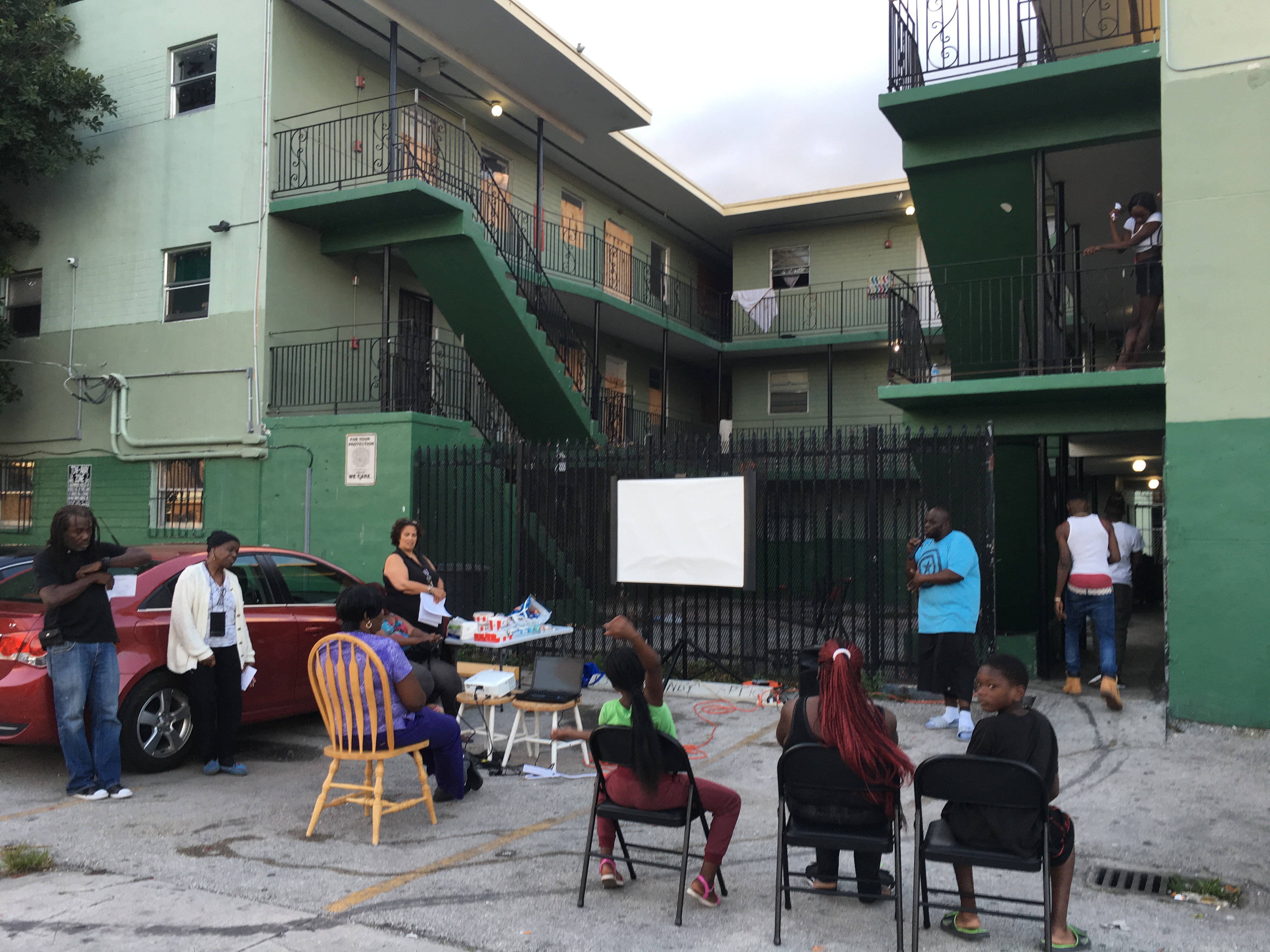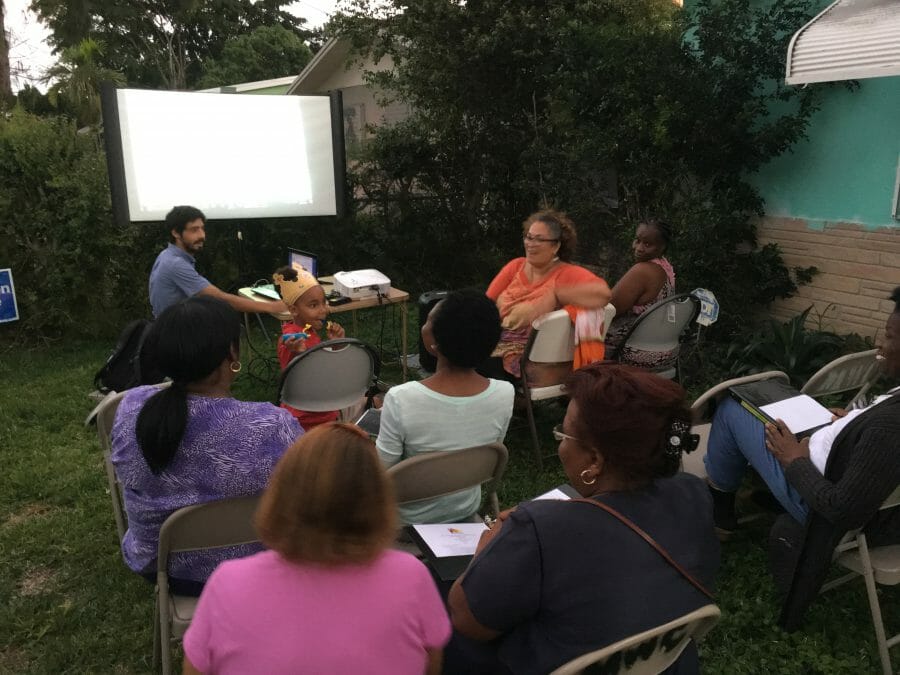
An education workshop about community land trusts and tenant rights. Photo courtesy of SMASH
SMASH (Struggle for Miami’s Affordable and Sustainable Housing) believes that community control of land involves the constant process of inviting the most disenfranchised members of our community to voice their opinions and feedback on how the land is being used. The community for us consists of families who have been negatively affected by slumlords in inner-city Miami.
Community control should take into account the fact that many of these people do not come from a culture of consistent civic participation, and so it is incumbent on organizers to think innovatively on how to include them in the process in a genuine way. For us, that has meant bringing the creature comforts of a presentation hall or auditorium to the streets, so that the usual barriers of transportation, scheduling, and money are removed from the equation. We also believe that as technology advances, more opportunities will present themselves for how people stay engaged in the process. An app that sorts civic matters by order of relevance and that creates space for virtual town halls where suggestions can be tabulated into a codec of some kind would be a great alternative to trying in vain to get everyone in the neighborhood to City Hall for a hearing.
SMASH’s ultimate goal is to have parcels of land under its control that its members can exercise decision-making power over, but we have to start with an organization that is itself controlled by its members.
The government has historically treated its people as an option, which has created a generation of citizens who feel that their participation is also optional. The opposite is true, and we must do better to make sure listening to the people is as mandatory as paying the mayor’s salary.



Comments